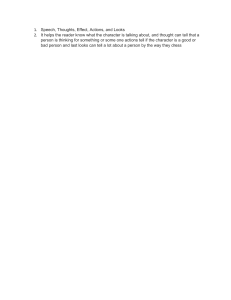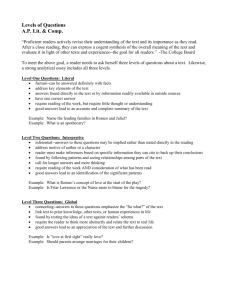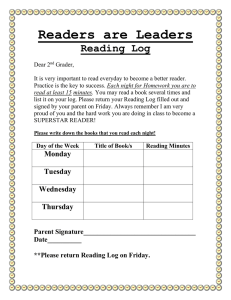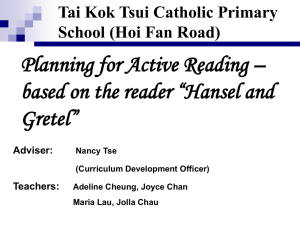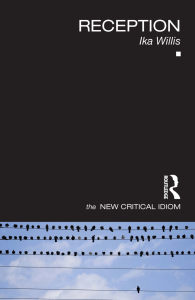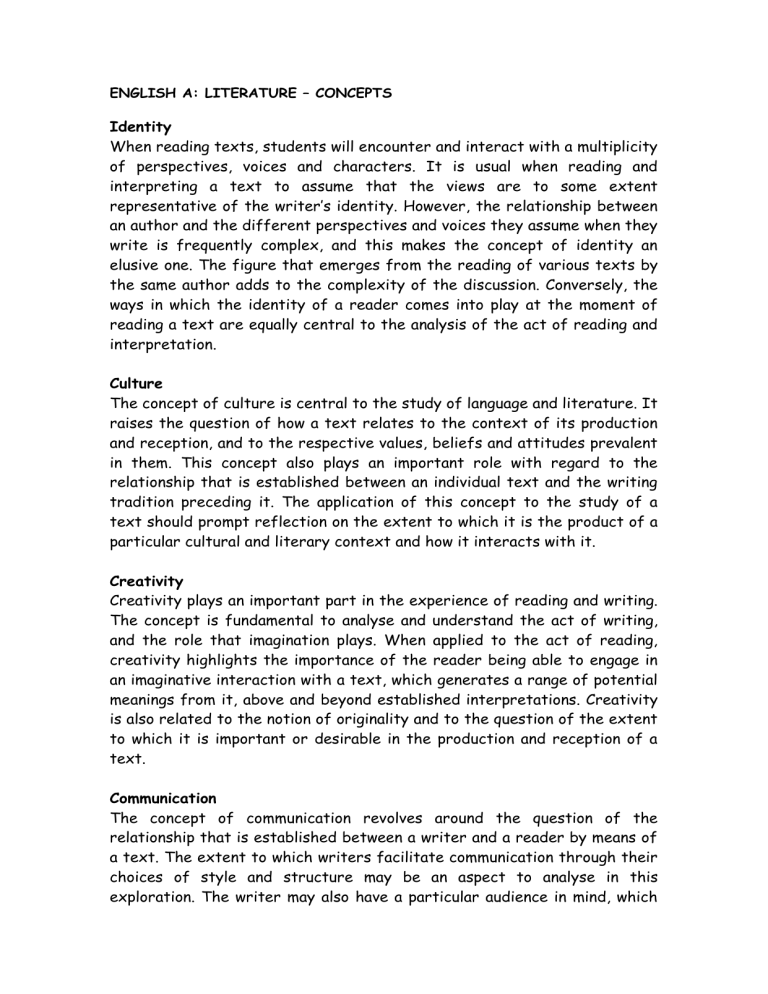
ENGLISH A: LITERATURE – CONCEPTS Identity When reading texts, students will encounter and interact with a multiplicity of perspectives, voices and characters. It is usual when reading and interpreting a text to assume that the views are to some extent representative of the writer’s identity. However, the relationship between an author and the different perspectives and voices they assume when they write is frequently complex, and this makes the concept of identity an elusive one. The figure that emerges from the reading of various texts by the same author adds to the complexity of the discussion. Conversely, the ways in which the identity of a reader comes into play at the moment of reading a text are equally central to the analysis of the act of reading and interpretation. Culture The concept of culture is central to the study of language and literature. It raises the question of how a text relates to the context of its production and reception, and to the respective values, beliefs and attitudes prevalent in them. This concept also plays an important role with regard to the relationship that is established between an individual text and the writing tradition preceding it. The application of this concept to the study of a text should prompt reflection on the extent to which it is the product of a particular cultural and literary context and how it interacts with it. Creativity Creativity plays an important part in the experience of reading and writing. The concept is fundamental to analyse and understand the act of writing, and the role that imagination plays. When applied to the act of reading, creativity highlights the importance of the reader being able to engage in an imaginative interaction with a text, which generates a range of potential meanings from it, above and beyond established interpretations. Creativity is also related to the notion of originality and to the question of the extent to which it is important or desirable in the production and reception of a text. Communication The concept of communication revolves around the question of the relationship that is established between a writer and a reader by means of a text. The extent to which writers facilitate communication through their choices of style and structure may be an aspect to analyse in this exploration. The writer may also have a particular audience in mind, which may mean assumptions have been made about the reader’s knowledge or views, making communication with some readers easier than with others. Alternatively, the amount of cooperation that a text demands from a reader for communication to take place, and the readiness of the reader to engage is also important as a topic for discussion. Even with cooperative readers, the meaning of a text is never univocal, which makes the concept of communication a particularly productive, and potentially problematic one in relation to both literary and non-literary texts. Perspective A text may offer a multiplicity of perspectives which may, or may not, reflect the views of its author. Readers have also their own perspectives, which they bring to their interaction with the text. This variety of perspectives impacts on the interpretation of a text and, therefore, deserve critical attention and discussion. The fact that the acts of reading and writing happen in a given time and place poses the additional question of how far the contexts of production and reception have influenced and even shaped those perspectives. Transformation The study of the connections among texts constitutes the focus of one of the three areas of exploration, namely intertextuality: connecting texts. The complex ways in which texts refer to one another, appropriate elements from each other and transform them to suit a different aesthetic or communicative purpose are evidence of the importance of transformation in the process of creating a text. Additionally, the act of reading is potentially transformative in itself, both for the text and the reader. Different readers may transform a text with their personal interpretation. The text, on the other hand, can have an impact on the reader, which potentially might lead to action and to the transformation of reality. Representation The way in which language and literature relate to reality has been the subject of much debate among linguists and literary theorists across time. Statements and manifestos by writers have made claims about this relationship, which range from affirming that literature should represent reality as accurately as possible to claiming art’s absolute detachment and freedom from reality and any duty to represent it in the work of art. Irrespective of such a discussion, the concept is a central one to the subject in connection with the way in which form and structure interact with, and relate to, meaning.

